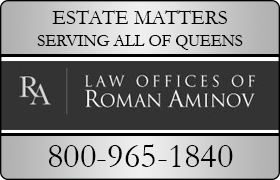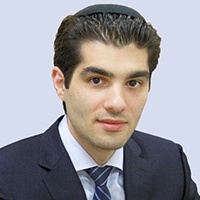Carle Place Trusts Lawyer, New York
Sponsored Law Firm
-
 x
x

Click For More Info:
-
The Law Offices of Roman Aminov
147-17 Union Turnpike Flushing, NY 11367 » view mapElder Law, Probate, Estate Planning Free Inital Phone Consultation
The Law Offices of Roman Aminov is a client centric trusts and estates practice concentrating in estate planning, elder law, and probate.
800-965-1840  Roman Aminov
Flushing, NY
Roman Aminov
Flushing, NY Attorney At Law - New York, 2011
 Testimonials
Testimonials"Roman went out his way to help me. He made several attempts to contact me."
 Contact UsEmail or Call 24/7
Contact UsEmail or Call 24/7Call for free initial consultation,
800-965-1840.
Lawrence Neal Berwitz
✓ VERIFIEDEstate, Trusts, Elder Law, Power of Attorney, Wills & Probate
Lawrence N. Berwitz has been practicing law since 1980. He is a graduate of St. John’s University School of Law (1979) and earned his bachelor’s ... (more)
FREE CONSULTATION
CONTACTDonald James Boland
Litigation, Trusts, Household Mold, Personal Injury
Status: In Good Standing Licensed: 62 Years
William Leonard Rothenberg
Commercial Real Estate, Land Use & Zoning, Trusts, Wills & Probate
Status: In Good Standing Licensed: 87 Years
Samuel Kirschenbaum
Litigation, Commercial Real Estate, Trusts, Trademark
Status: In Good Standing Licensed: 82 Years
Amanda Beth Ebbin
Trusts, Workers' Compensation, Divorce, Business
Status: In Good Standing Licensed: 16 Years


 Testimonials
Testimonials Contact UsEmail or Call 24/7
Contact UsEmail or Call 24/7

